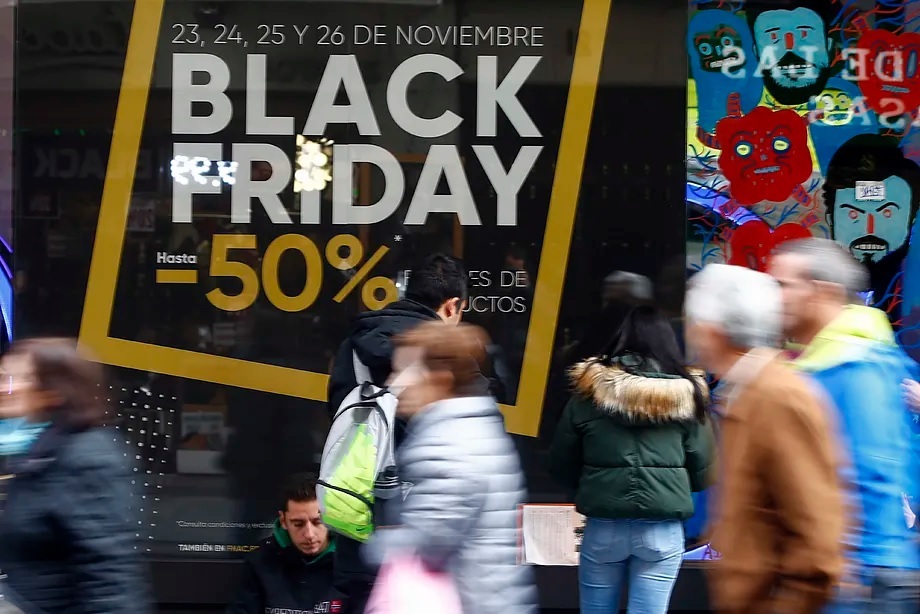We don't have room in the closet, but we keep filling the cart with a click every Thursday after spotting the latest novelty from an influencer. Can't miss out. We don't even need that much face cream, but this one has 1% retinol. More sports shoes come in, even though we have seven pairs, because this sole cushions better than the others. Being a bit less frivolous, this new book isn't a bad idea, while the pending library continues to gather dust. And so we could continue to expand the list, but let's be honest, does any of this make us happier, or do we prefer a hot coffee alone at breakfast, a quality conversation, or a sunset by the sea?
In her book on shopping addiction, To Buy or Not to Buy: Why We Overshop and How to Stop, psychologist April Lane Benson reflects on whether consumption is more related to unresolved emotional needs than the search for objects themselves. "It's not about owning things, but about soothing a pain or dissatisfaction that we haven't been able to address in any other way," she writes.
Spanish authors have also addressed this issue. In The Art of Not Making Life Bitter, Rafael Santandreu insists on this idea of how seeking satisfaction in material things does not solve internal problems. Also, Patri Psicóloga set out to live with less consumerism for at least a year as a personal goal, without calling for any economic boycott. Simply as a philosophy to save money and get rid of many things that no longer fit her lifestyle but could still be useful to others. "I don't wish to inspire anyone. It's a well-thought-out purpose based on my value scale. But it's neither better nor worse than what other people decide," she shared.
During Black Friday, when eight out of ten Spaniards will take advantage to buy Christmas gifts and will spend an average of 242 euros, according to a study by Aladinia, we think about how to achieve a "Wellness Friday" with the help of experts and understanding the mechanisms unleashed by the aggressive discounts that inundate us.
"We feel like we're getting something valuable at a lower price, which gives us a sense of achievement. The brain's reward circuits are activated, releasing dopamine, a neurotransmitter related to pleasure and reward, thus generating an immediate sense of well-being and pleasure," explains Paloma Rey, a psychologist and collaborator of Doctoralia.
Furthermore, the perception that the discount is temporary or exclusive increases the urgency. "We tend to focus on the reduced price and not on reflecting if we really need the product. The brain interprets the possibility of missing out as a threat, which triggers an emotional response that drives us to make a quick decision."
However, this effect is usually temporary, assures the psychologist. Once the novelty of the purchase fades, dopamine levels return to their natural state, and the feeling of satisfaction quickly diminishes. "This phenomenon, known as hedonic adaptation, refers to the brain's ability to get used to pleasurable stimuli and constantly seek new sources of gratification. For this reason, some people repeatedly turn to shopping to get that momentary high, which can lead to compulsive or addictive behaviors."
José Blázquez, a Marketing professor at the European University, explains that we are physiologically designed to act this way and focus all our efforts on obtaining the reward in the era of abundance. And that reward is the discount, not the product. "We are 21st-century beings with the body and mind of hunter-gatherers. It's easy to say that we should use reason, but in practice, even marketing experts fall into traps because we are human." Once the "prey" is caught, the same level of motivation or energy is no longer required. "We could say that we are designed more to desire something than to enjoy it once we have it."
The expert distinguishes between essential and superfluous products. The latter can cover up some complex or fear. "In marketing, it's said that each consumer is two people: who they are and who they would like to be. The product often brings the person closer to what they would like to be. People with more insecurities are more likely to buy to fill those voids," he analyzes.
To avoid this, Paloma Rey believes it is essential to reflect on whether our purchases respond to a real need or if they are being used as a mechanism to compensate for emotions such as the following:
To avoid compulsive shopping, it is essential to develop conscious strategies that allow us to make more rational decisions, encourages the psychologist.
